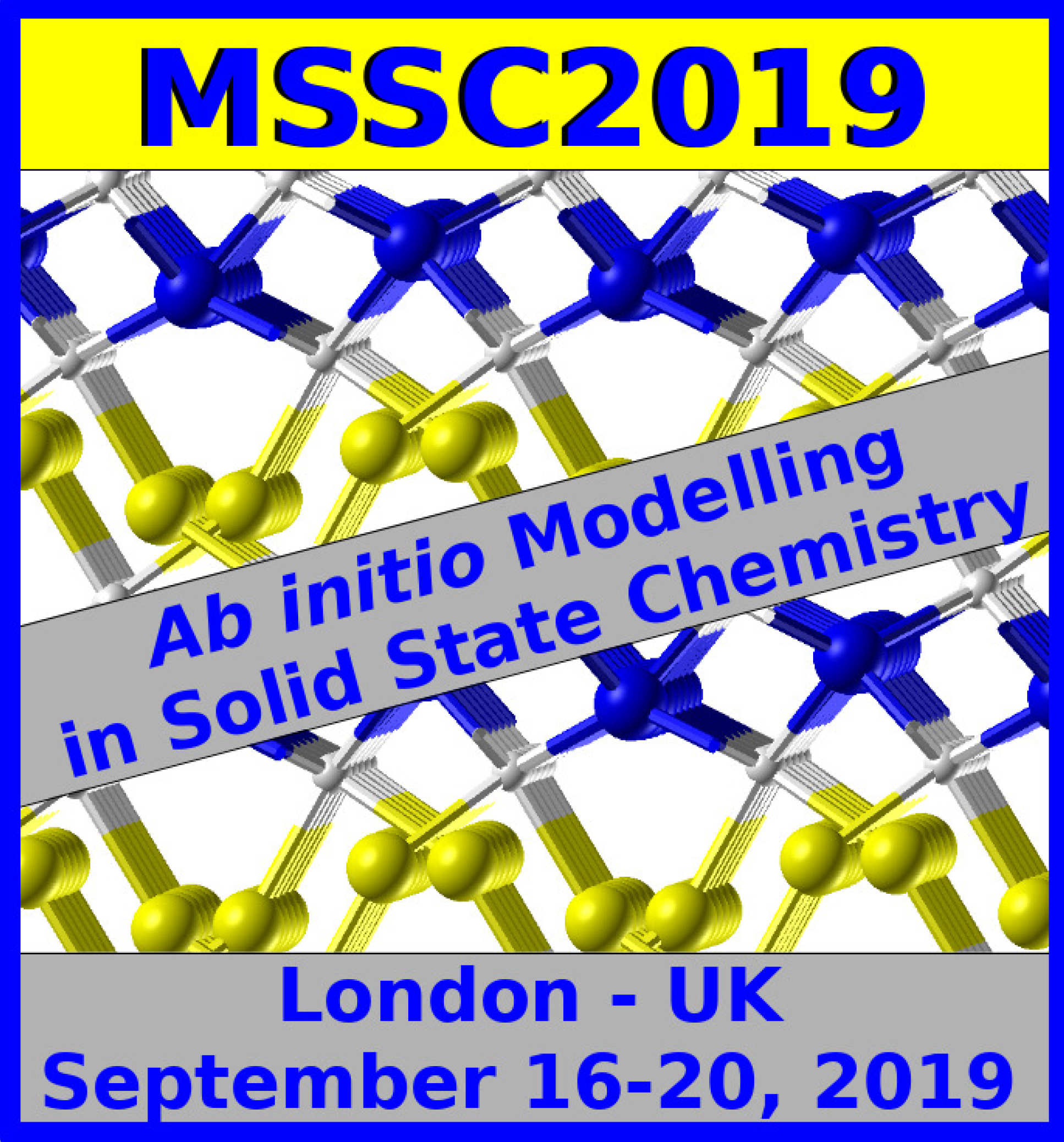The Department of Chemistry and the Thomas Young Centre at Imperial College London and the Theoretical Chemistry Group of the University of Torino, in collaboration with the Computational Materials Science Group of the Science and Technology Facilities Council (STFC), are organizing the 2019 MSSC Summer School on the "ab initio modelling of crystalline and defective solids with the CRYSTAL code".
CRYSTAL is a general-purpose program for the study of periodic solids. It uses a local basis set comprised of Gaussian type functions and can be used to perform calculations at the Hartree-Fock, density functional or global and range-separated hybrid functionals (e.g. B3LYP, HSE06), double hybrid levels of theory. Analytical first derivatives with respect to the nuclear coordinates and cell parameters and analytical derivatives, up to fourth order, with respect to an applied electric field (CPHF/CPKS) are available.
The structure, thermodynamics, vibrational states and a wide range of properties can be computed for crystals, surfaces, polymers and molecules. In addition to its long standing use in solid state chemistry and condensed matter physics CRYSTAL is also used by a rapidly growing community of non-specialized users (material scientists, crystallographers, geologists, ...).
The School is addressed to PhD students, Post-Docs and researchers with interests in solid state chemistry, physics, materials science, surface science and catalysis. It provides an overview of the possibilities offered by ab initio quantum mechanical techniques adopted in CRYSTAL when applied to the characterization of crystalline materials.
The school provides an overview of the underlying theory and fundamental issues affecting use of the code, with particular emphasis on practical issues in obtaining reliable data efficiently using modern computer hardware.
The capabilities of CRYSTAL will be illustrated, with hands-on tutorials organized in the afternoon sessions.
Directors
- S. Casassa, Università di Torino (Italy)
- N. M. Harrison, Imperial College London (UK)
- G. Mallia, Imperial College London (UK)
Scientific Committee
- F. Corà, University College London (UK)
- B. Civalleri, Università di Torino (Italy)
- A. Erba, Università di Torino (Italy)
- L. Maschio, Università di Torino (Italy)
Technical Support
- L. J. Stagg, Digital Media & Communications Office, Imperial College London (UK)
- C. M. Cannon, Digital Media & Communications Office, Imperial College London (UK)
Acknowledgments
The MSSC2019 organising committee would like to acknowledge the financial support of:
|
|
|---|
In addition, the MSSC2019 organising committee would like to acknowledge the in-kind support of:
Links

Contact
Contact Details
Before contacting us with a question about MSSC2019 please check our Frequently Asked Questions page. If your question is not answered on this page then you can email Dr Giuseppe Mallia